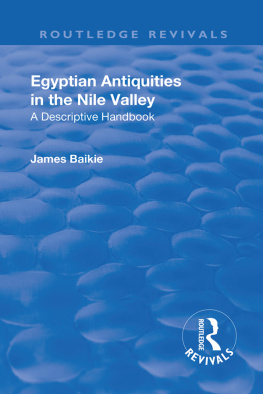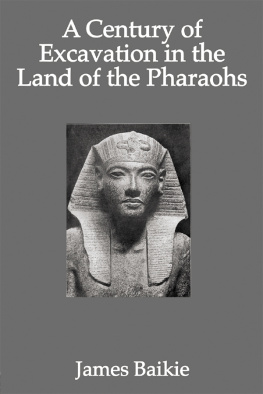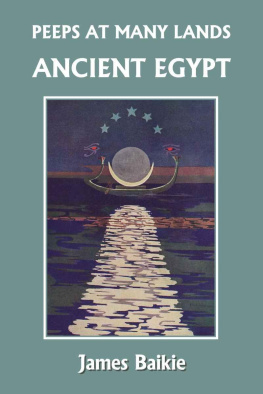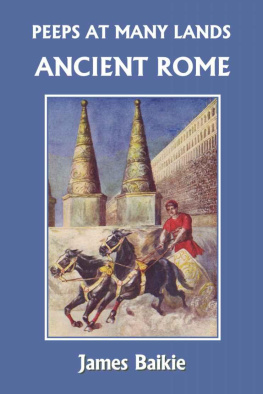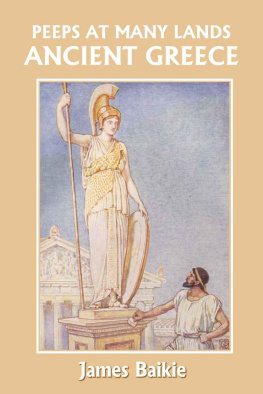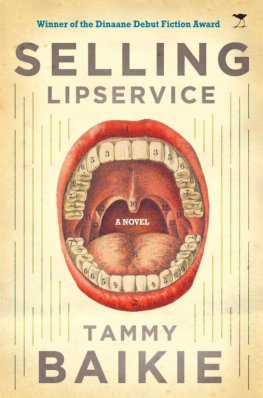A Land of Old Renown
If we were asked to name the most interesting country in the world, I suppose that most people would say Palestinenot because there is anything so very wonderful in the land itself, but because of all the great things that have happened there, and above all because of its having been the home of our Lord. But after Palestine, I think that Egypt would come next. For one thing, it is linked very closely to Palestine by all those beautiful stories of the Old Testament, which tell us of Joseph, the slave-boy who became Viceroy of Egypt; of Moses, the Hebrew child who became a Prince of Pharaoh's household; and of the wonderful exodus of the Children of Israel.
But besides that, it is a land which has a most strange and wonderful story of its own. No other country has so long a history of great Kings, and wise men, and brave soldiers; and in no other country can you see anything to compare with the great buildings, some of them most beautiful, all of them most wonderful, of which Egypt has so many. We have some old and interesting buildings in this country, and people go far to see cathedrals and castles that are perhaps five or six hundred years old, or even more; but in Egypt, buildings of that age are looked upon as almost new, and nobody pays very much attention to them. For the great temples and tombs of Egypt were, many of them, hundreds of years old before the story of our Bible, properly speaking, begins.
The Pyramids, for instance, those huge piles that are still the wonder of the world, were far older than any building now standing in Europe, before Joseph was sold to be a slave in Potiphar's house. Hundreds upon hundreds of years before anyone had ever heard of the Greeks and the Romans, there were great Kings reigning in Egypt, sending out their armies to conquer Syria and the Soudan, and their ships to explore the unknown southern seas, and wise men were writing books which we can still read. When Britain was a wild, unknown island, inhabited only by savages as fierce and untaught as the South Sea Islanders, Egypt was a great and highly civilized country, full of great cities, with noble palaces and temples, and its people were wise and learned.
So in this little book I want to tell you something about this wonderful and interesting old country, and about the kind of life that people lived in it in those days of long ago, before most other lands had begun to waken up, or to have any history at all. First of all, let us try to get an idea of the land itself. It is a very remarkable thing that so many of the countries which have played a great part in the history of the world have been small countries. Our own Britain is not very big, though it has had a great story. Palestine, which has done more than any other country to make the world what it is to-day, was called "the least of all lands." Greece, whose influence comes, perhaps, next after that of Palestine, is only a little hilly corner of Southern Europe. And Egypt, too, is comparatively a small land.
MAP OF ANCIENT EGYPT
It looks a fair size when you see it on the map; but you have to remember that nearly all the land which is called Egypt on the map is barren sandy desert, or wild rocky hill-country, where no one can live. The real Egypt is just a narrow strip of land on either side of the great River Nile, sometimes only a mile or two broad altogether, never more than thirty miles broad, except near the mouth of the river, where it widens out into the fan-shaped plain called the Delta. Someone has compared Egypt to a lily with a crooked stem, and the comparison is very true. The long winding valley of the Nile is the crooked stem of the lily, and the Delta at the Nile mouth, with its wide stretch of fertile soil, is the flower; while, just below the flower, there is a little buda fertile valley called the Fayum.
Long before even Egyptian history begins, there was no bloom on the lily. The Nile, a far bigger river then than it is now, ran into the sea near Cairo, the modern capital of Egypt; and the land was nothing but the narrow valley of the river, bordered on either side by desert hills. But gradually, century by century, the Nile cut its way deeper down into the land, leaving banks of soil on either side between itself and the hills, and the mud which it brought down in its waters piled up at its mouth and pressed the sea back, till, at last, the Delta was formed, much as we see it now. This was long before Egypt had any story of its own; but even after history begins the Delta was still partly marshy land, not long reclaimed from the sea, and the real Egyptians of the valley despised the people who lived there as mere marsh-dwellers. Even after the Delta was formed, the whole country was only about twice as large as Wales, and, though there was a great number of people in it for its size, the population was only, at the most, about twice as great as that of London.
An old Greek historian once said, "Egypt is the gift of the Nile," and it is perfectly true. We have seen how the great river made the country to begin with, cutting out the narrow valley through the hills, and building up the flat plain of the Delta. But the Nile has not only made the country; it keeps it alive. You know that Egypt has always been one of the most fertile lands in the world. Almost anything will grow there, and it produces wonderful crops of corn and vegetables, and, nowadays, of cotton. It was the same in old days. When Rome was the capital of the world, she used to get most of the corn to feed her hungry thousands from Egypt by the famous Alexandrian corn-ships; and you remember how, in the Bible story, Joseph's brethren came down from Palestine because, though there was famine there, there was "corn in Egypt." And yet Egypt is a land where rain is almost unknown. Sometimes there will come a heavy thunder-shower; but for month after month, year in and year out, there may be no rain at all.
How can a rainless country grow anything? The secret is the Nile. Every year, when the rains fall in the great lake-basin of Central Africa, from which one branch of the great river comes, and on the Abyssinian hills, where the other branch rises, the Nile comes down in flood. All the lower lands are covered, and a fresh deposit of Nile mud is left upon them; and, though the river does not rise to the higher grounds, the water is led into big canals, and these, again, are divided up into little ones, till it circulates through the whole land, as the blood circulates through your arteries and veins. This keeps the land fertile, and makes up for the lack of rain.
Apart from its wonderful river, the country itself has no very striking features. It is rather a monotonous landa long ribbon of green running through a great waste of yellow desert and barren hills. But the great charm that draws people's minds to Egypt, and gives the old land a never-failing interest, is its great story of the past, and all the relics of that story which are still to be seen.
In no other land can you see the real people and things of the days of long ago as you can see them in Egypt. Think how we should prize an actual building that had been connected with the story of King Arthur, if such a thing could be found in our country, and what wonderful romance would belong to the weapons, the actual shields and helmets, swords and lances, of the Knights of the Round Table, Lancelot and Tristram and Galahadif only we could find them. Out there in Egypt you can see buildings compared with which King Arthur's Camelot would be only a thing of yesterday; and you can look, not only on the weapons, but on the actual faces and forms of great Kings and soldiers who lived, and fought bravely for their country, hundreds of years before Saul and Jonathan and David began to fight the battles of Israel. You can see the pictures of how people lived in those far-away days, how their houses were built, how they traded and toiled, how they amused themselves, how they behaved in time of sorrow, how they worshipped Godall set down by themselves at the very time when they were doing these things. You can even see the games at which the children used to play, and the queer old-fashioned toys and dolls that they played with, and you can read the stories which their mothers and their nurses used to tell them.





